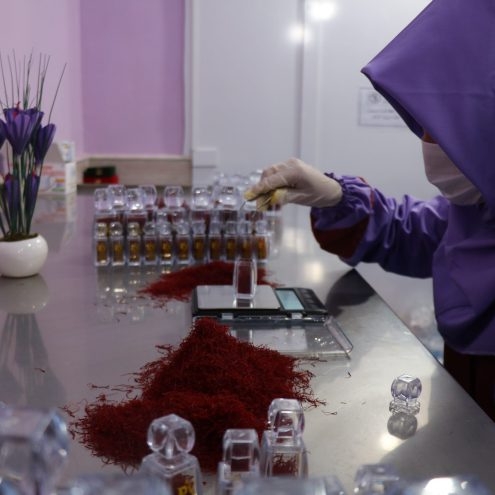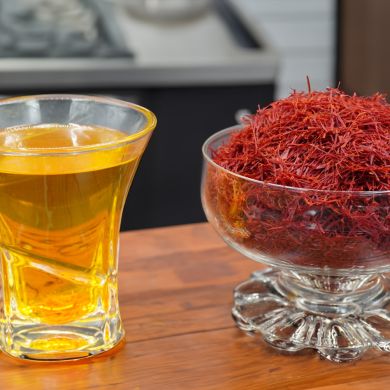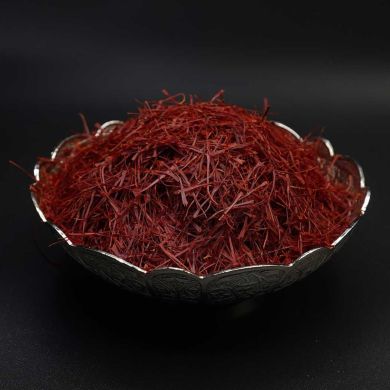Science-backed benefits of saffron

Saffron, often referred to as the world’s most expensive spice, is not only renowned for its exquisite flavor but also for its intriguing health benefits, as supported by various scientific researchers and experts. Harvested from the delicate crocus flower, saffron is a treasure trove of over 150 beneficial compounds, each contributing to its remarkable medicinal properties.
- Mood Enhancement and Depression Relief – Supported by Multiple Studies
Saffron has earned its reputation as a mood-enhancing spice, backed by a body of scientific research. A 2019 medical review, featuring the findings of nine studies, highlighted the spice’s significant impact on alleviating mild to moderate depression. This compelling discovery underscores the potential of saffron as a natural remedy for mood disorders.
Another study from 2019 drew a noteworthy comparison between saffron and Selective Serotonin Reuptake Inhibitors (SSRIs), the conventional treatment for depression. Researchers found that pharmacological doses of saffron, in dried, extract, and encapsulated forms, exhibit the ability to regulate neurotransmitters, including serotonin – the same neurotransmitter targeted by SSRIs.
- Inflammation Reduction and Antioxidant Properties – Supported by Expert Opinions
The profound antioxidant properties of saffron are supported by experts in the field. Saffron contains vital antioxidants such as crocin, safranal, and picrocrocin. These antioxidants play a pivotal role in reducing and preventing cell damage and mitigating inflammation, which is a common denominator in several diseases.
According to Christine Bishara, MD, founder of From Within Medical, saffron’s potent anti-inflammatory qualities offer potential benefits in mitigating conditions such as heart disease, obesity, Alzheimer’s, and diabetes. These claims find support in the ability of saffron’s chemical components to safeguard the body from various illnesses.
- Crocin, for instance, has demonstrated promise in preserving brain health and potentially aiding those with Alzheimer’s disease.
- The carotenoids found in saffron have shown protective effects against cancer and can complement cancer treatment, including chemotherapy.
- Saffron’s role in reducing cholesterol and obesity in animal models suggests potential benefits for heart health, though further human research is required.
- The compound crocetin is linked to preventing insulin resistance, a precursor to type 2 diabetes.
“Saffron is a gift of nature that adds a golden glow to any dish it touches.”
~ Naomi Duguid
- Sexual and Reproductive Health – Backed by Scientific Studies
Saffron’s traditional use in addressing sexual dysfunction has garnered the attention of researchers, who have conducted studies to explore its potential benefits.
- A small 2008 study found that women who consumed 30 mg of saffron daily experienced fewer premenstrual syndrome (PMS) symptoms compared to those who received a placebo.
- In 2012, a study revealed that 30 mg of saffron daily may counteract the sexual side effects of SSRI medications in women, addressing issues like lack of arousal, vaginal dryness, and pain during sex.
- A 2009 study suggested that a daily intake of 200 mg of saffron could enhance erectile function in men dealing with erectile dysfunction.
4. Saffron Improves Sleep Quality
New research from Murdoch University highlights saffron as a potential remedy for sleep issues. Dr. Adrian Lopresti, the lead researcher, known for saffron’s effectiveness in treating depression, found that saffron could also improve sleep quality.
The study focused on healthy adults with self-reported poor sleep, a common problem affecting 10-45% of adults. A standardized saffron extract (affron®) at 14mg, twice daily for 28 days, significantly enhanced sleep quality, with the most noticeable changes occurring within the first week. Importantly, saffron was well-tolerated with no adverse effects reported.
While the results are promising, researchers stress the need for further, larger-scale studies to validate these findings in diverse populations. In summary, saffron’s potential to improve sleep quality adds to its array of health benefits, though consulting a healthcare professional before using saffron is still advisable.
Incorporating saffron into your diet is both safe and straightforward. You can enjoy saffron tea by boiling a few strands in water and adding honey for a touch of sweetness. Additionally, saffron pairs well with various dishes, including rice, eggs, seafood, and chicken.
In conclusion, saffron’s incredible health benefits, as highlighted by scientific research and expert opinions, make it a compelling addition to your wellness regimen. However, it is essential to consult with a healthcare professional before adding saffron or any herbal supplement to your diet, ensuring its safety and appropriateness for your specific circumstances.








Add comment